FAO’s work on aquatic food systems for the period 2022–2030 is outlined in its Blue Transformation roadmap, built on three core components:
- Effective management of all fisheries delivers healthy stocks and secures equitable livelihoods
- Sustainable aquaculture intensification and expansion satisfies global demand for aquatic food and distributes benefits equitably.
- Upgraded value chains ensure the social, economic and environmental viability of aquatic food systems.
Blue Transformation, core component #1: Effective Management of Fisheries
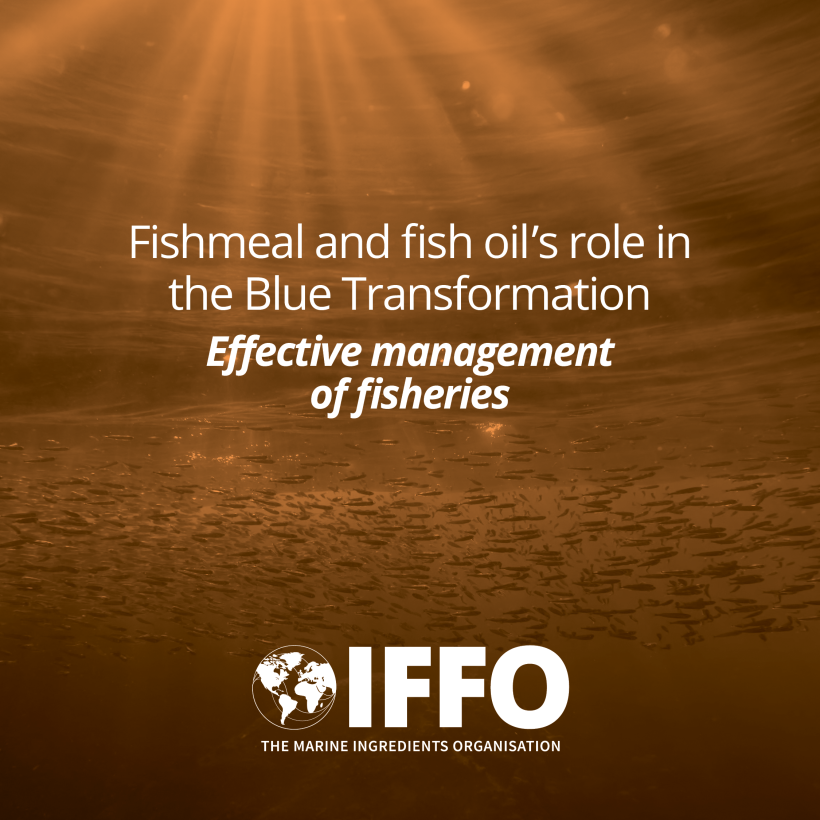
Blue Transformation is a visionary strategy put forward by the United Nations' Food and Agriculture Organisation

Fisheries management is the most effective tool to conserve and responsibly utilise resources
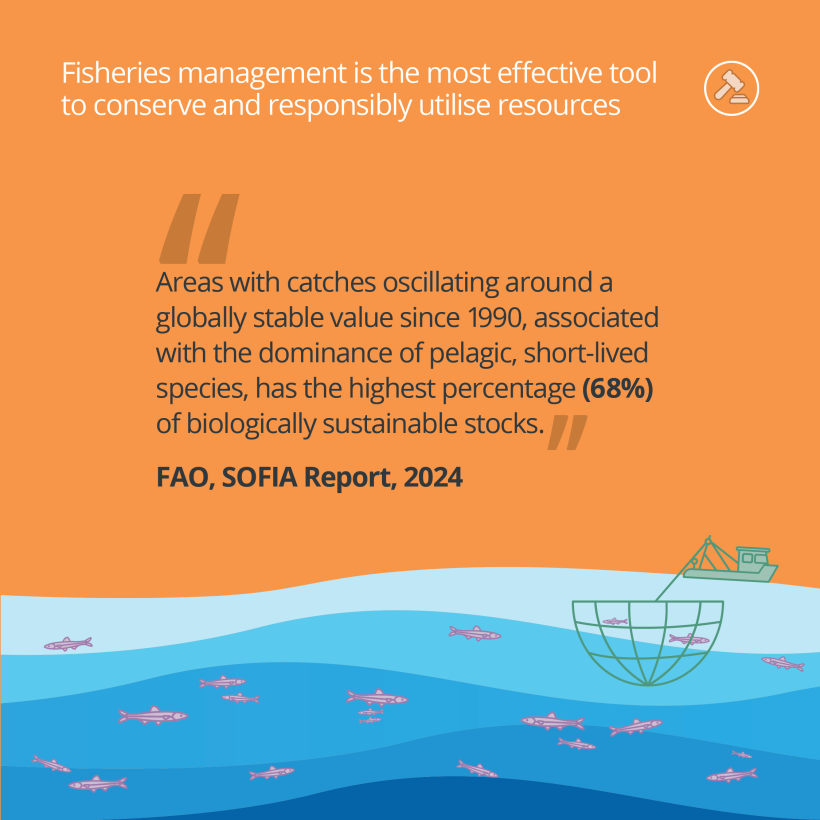
As a result of independently set quota systems, fishmeal and fish oil volumes stabilised at around 6 million tonnes par annum from 2000 onwards
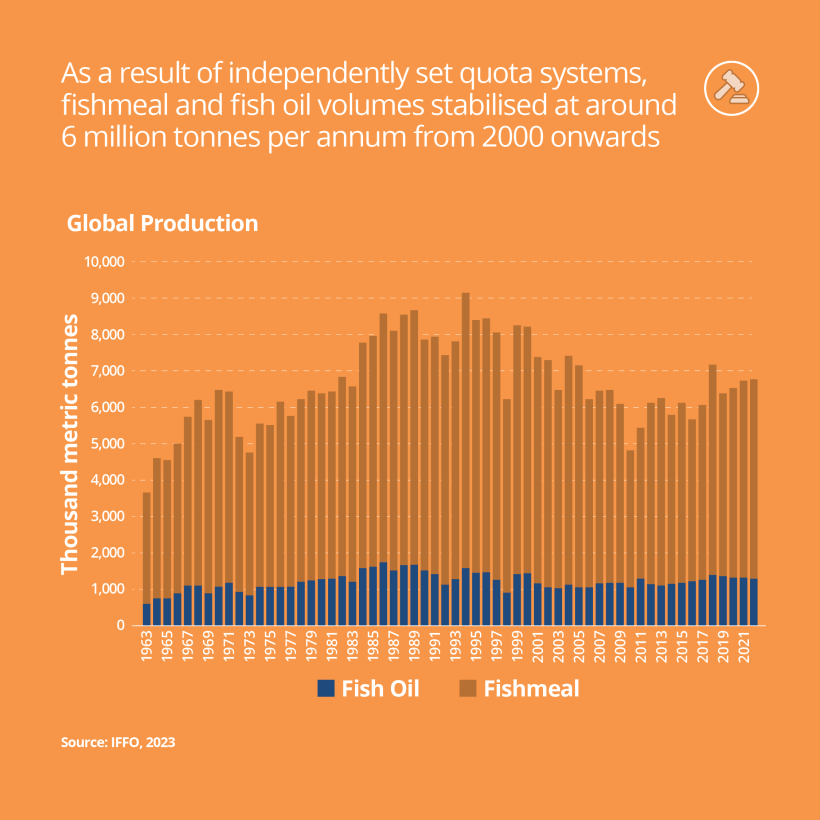
Objective sustainability guidance is needed
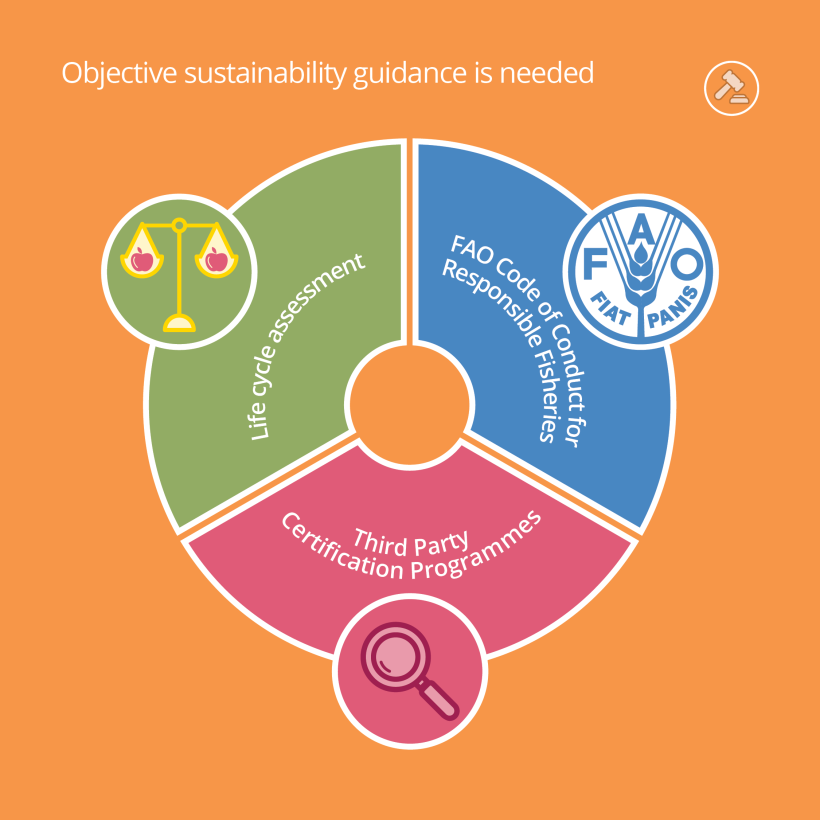
Blue Transformation, core component #2: Sustainable Expansion of Aquaculture
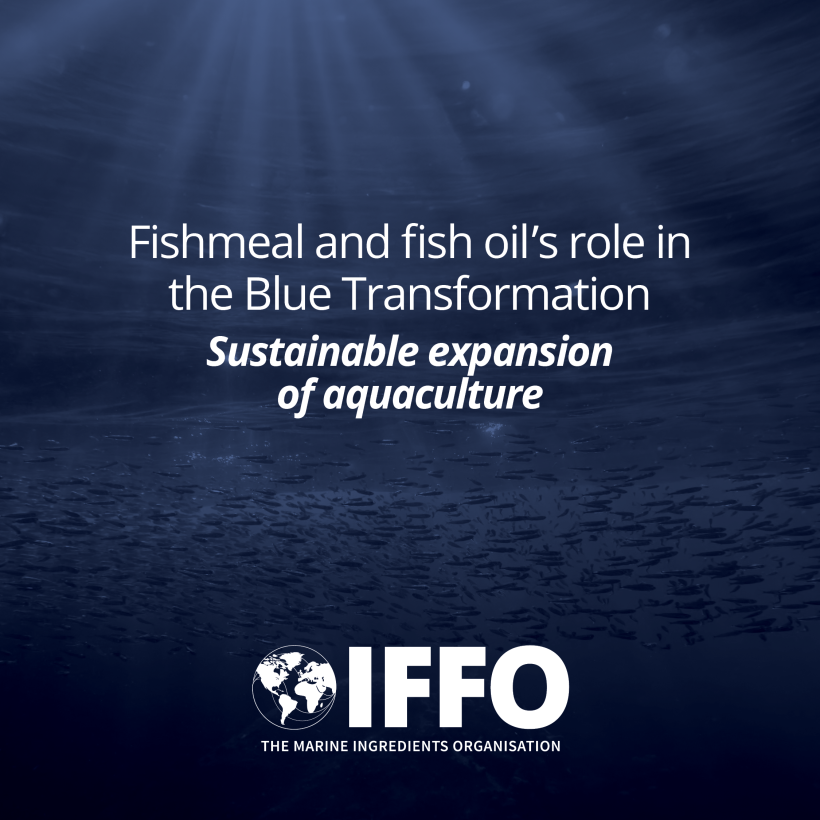
With aquaculture growing, more feed materials are needed
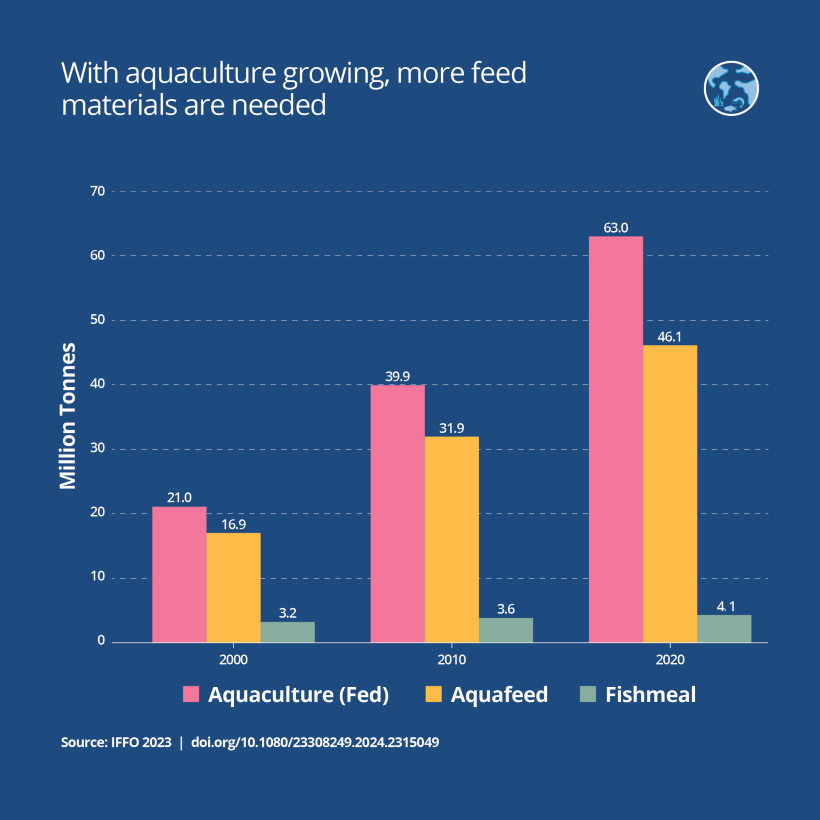
Expanding Aquaculture requires a diversification of the feed ingredients basket to meet the requested volumes
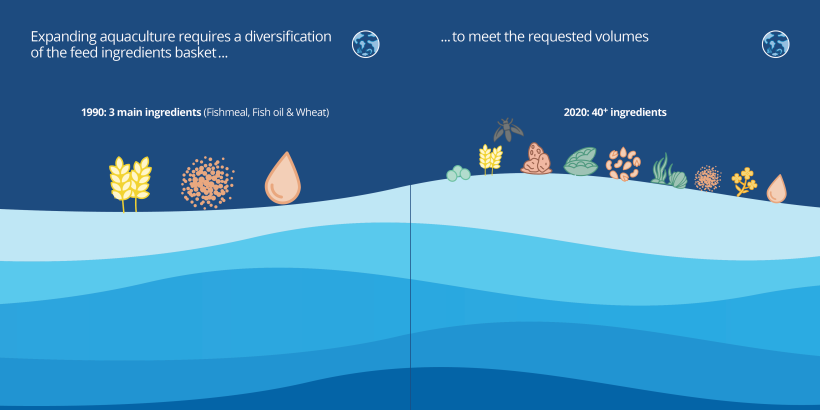
But feed intake must be ensured as it is the first hurdle in feeding farmed fish and depends on the palatability of the feed
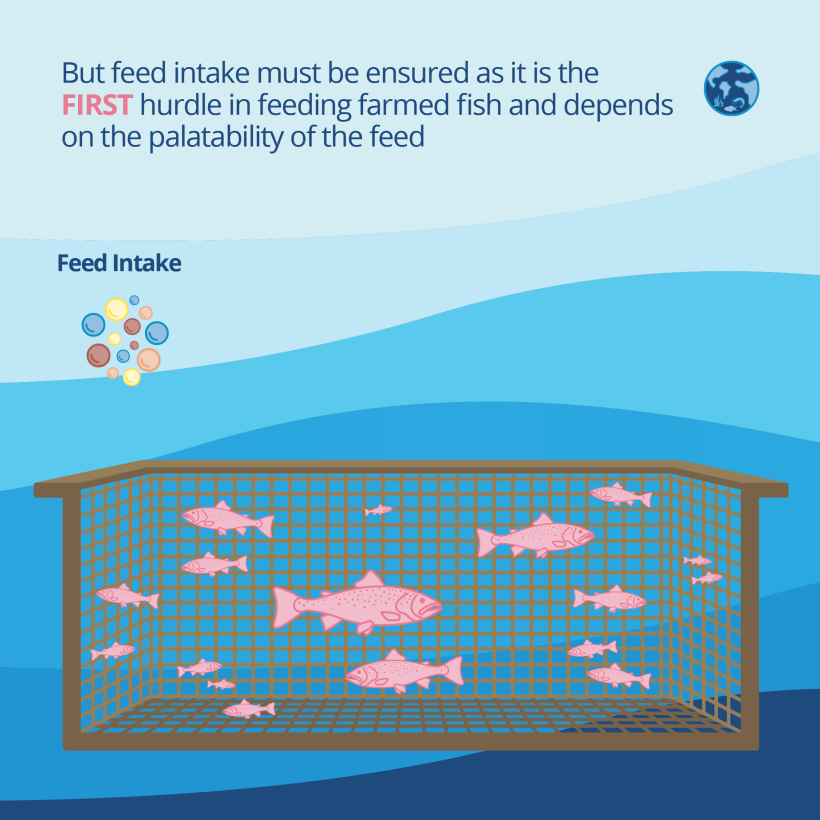
Fishmeal's nutrients have palatability benefits which are indispensable in the fish's first weeks
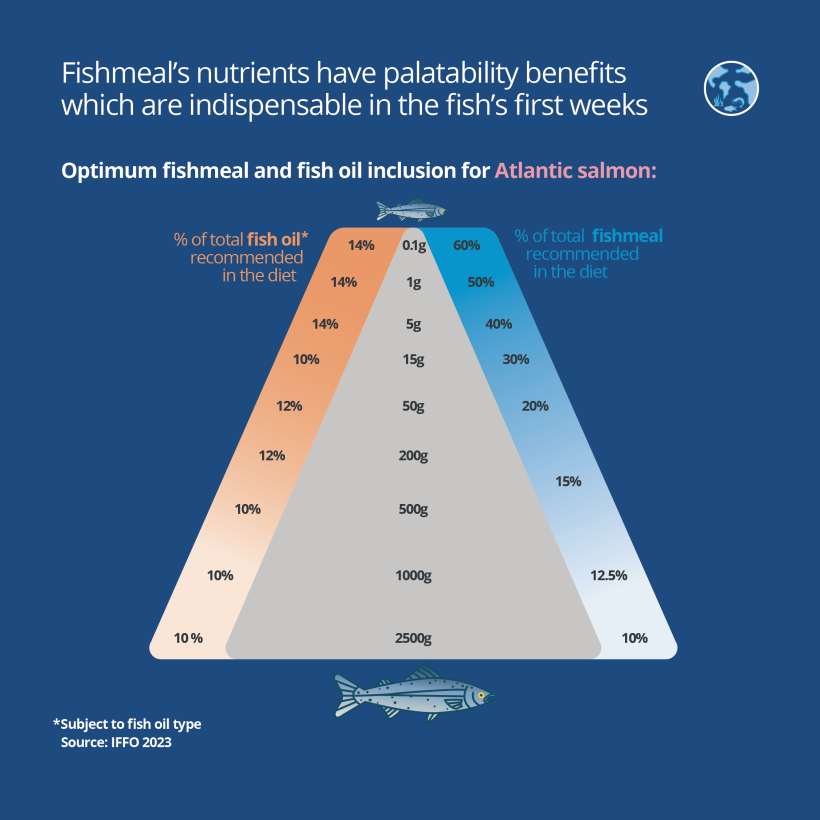
Fishmeal and fish oil's nutrients have a decisive role in the fish's growth

Those nutrients minimise the risks of deadly disease through EPA and DHA inclusion
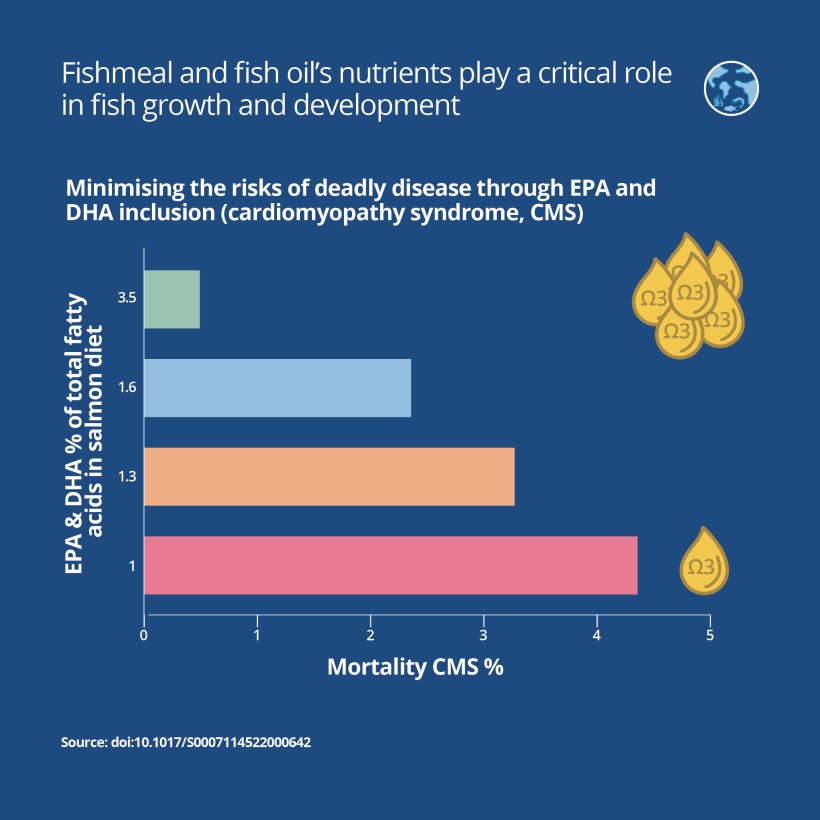
Substitution of fishmeal and fish oil in aquafeeds by terrestrial plants in the 2000s has increased the environmental footprint
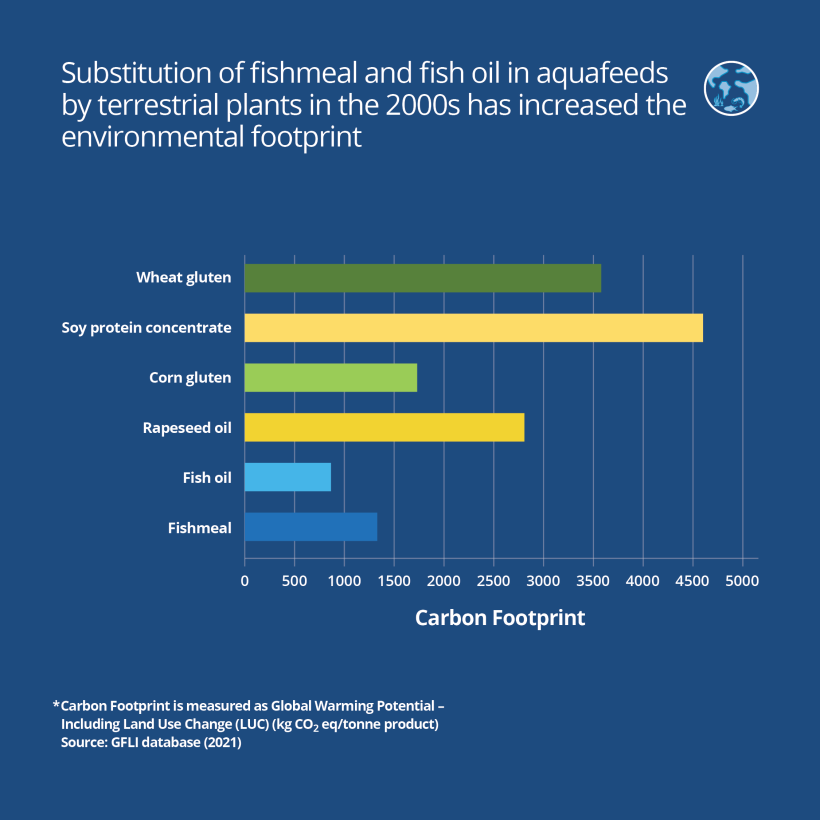
Blue Transformation, core component #3: Improved value chains and ensured nutrition
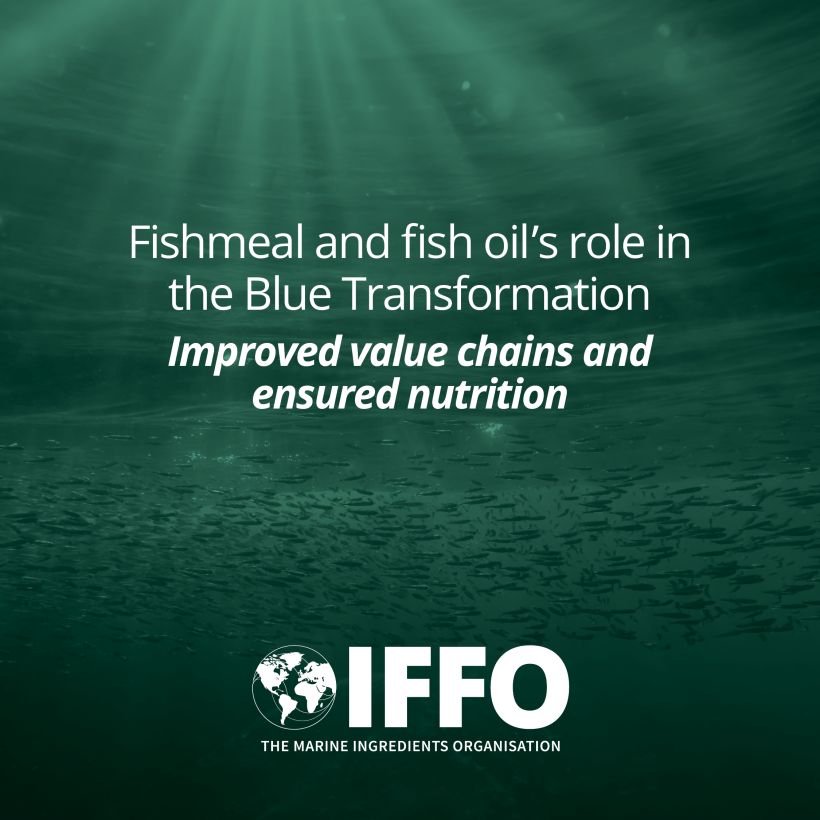
Fishmeal and fish oil are indirect food for humans
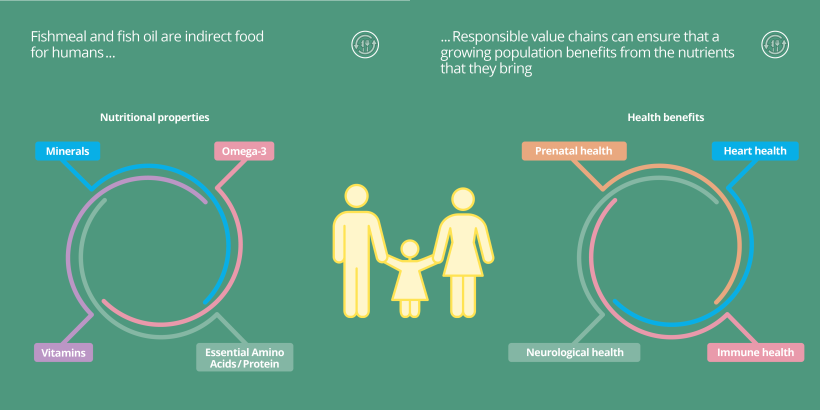
Viable infrastructure enables better retention of valuable nutrients within food systems
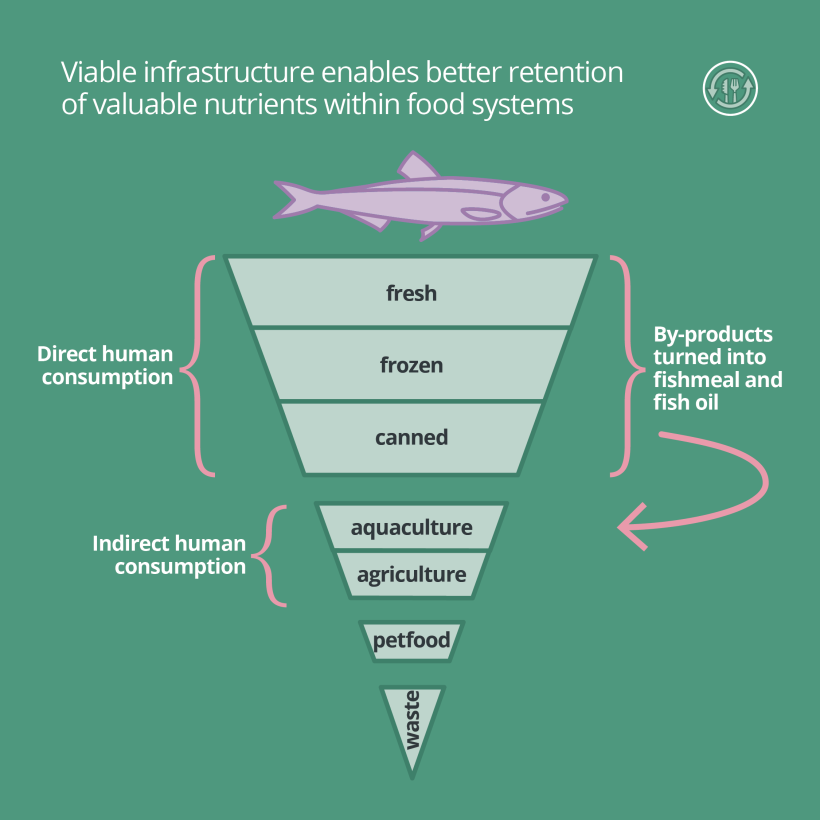
Improved value chains facilitate the use of fish by-products in the manufacturing of fishmeal and fish oil

There is some prospect for increasing marine ingredient production









